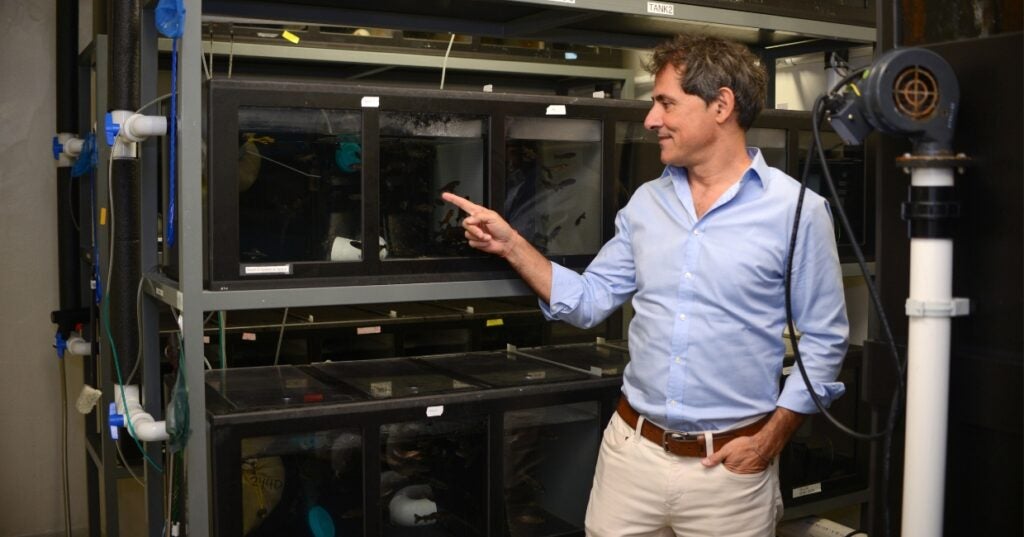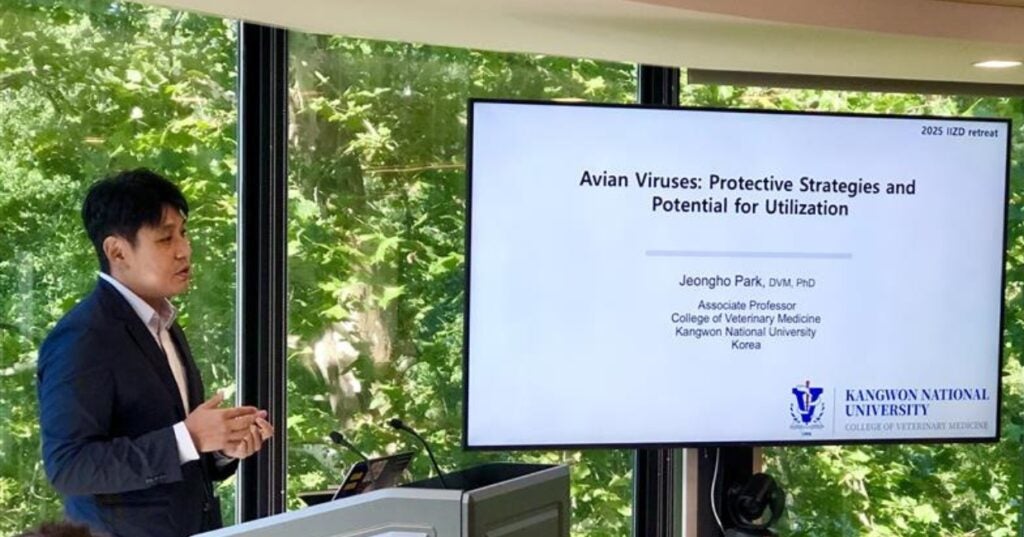The Institute for Infectious and Zoonotic Diseases at the University of Pennsylvania’s School of Veterinary Medicine to Fund Postdoctoral Fellowship

Long Kwan Metthew Lam, PhD, has been awarded a two-year inaugural postdoctoral fellowship through the newly established Institute for Infectious and Zoonotic Diseases (IIZD) at the University of Pennsylvania’s School of Veterinary Medicine (Penn Vet). Lam was selected for his innovative approach to salient scientific questions regarding mammalian immune response within the context of disease transmission.
Under the mentorship of Nilam S. Mangalmurti, MD, a physician-scientist at the University of Pennsylvania’s Perelman School of Medicine, Lam will use comparative immunology to decipher the nucleic acid sensing functions of bat, human, and mouse red blood cells to understand vector-borne viruses. The long-term goal is to identify novel methods to reduce cross-species disease transmission.
Awarded his PhD in Molecular Virology and Microbiology from the University of Pittsburgh’s School of Medicine in 2018, Lam studied the molecular mechanisms of attenuation for the yellow fever virus vaccine strain 17D. He is currently a postdoctoral researcher in Mangalmurti’s lab studying red blood cells and their role in inflammatory responses.
“This postdoctoral fellowship is just one of several efforts to sustain emerging science talent and their careers,” said De’Broski R. Herbert, PhD, Presidential Associate Professor, associate professor of Pathobiology, and associate director of global affairs and education at Penn Vet’s Institute for Infectious and Zoonotic Diseases. “We are so pleased to select Metthew and support him as he advances vital public health initiatives related to infectious diseases.”
The IIZD postdoctoral fellowship is a new initiative to support basic research while immersing early-career scientists in key aspects of infectious disease research, particularly in the areas of immunology and host-pathogen interactions. Funding supports collaborative, mentored research projects to develop diagnostics, treatments, and vaccines for diseases that can be passed from animals to humans.
About Research at the University of Pennsylvania’s School of Veterinary Medicine (Penn Vet)
Penn Vet’s scientists are a key part of the biomedical community at the University of Pennsylvania (Penn), and they bring a valuable veterinary component to the table. Universally recognized for its work in cancer and regenerative medicine, Penn Vet – which lists 16 of its faculty as members of Penn’s Institute for Regenerative Medicine – has long had a close relationship with Penn Medicine. In addition to its strengths in biomedicine, Penn Vet has a distinctive niche in infectious disease research. Leaning into this strength, Penn Vet launched the Institute for Infectious and Zoonotic Diseases (IIZD) to bolster Penn’s capacity to understand and develop diagnostics, treatments, vaccines, and cures for diseases that can be passed from animals to humans.
Related News

Behind the Breakthroughs: J. Oriol Sunyer
J. Oriol Sunyer explores how studying the evolution of the immune system reveals surprising connections between fish and human immunity, and what these discoveries could mean for the development of…

Penn Vet’s Institute for Infectious and Zoonotic Diseases Hosts Second Annual Research Retreat
The University of Pennsylvania (Penn) School of Veterinary Medicine’s (Penn Vet) Institute for Infectious and Zoonotic Diseases (IIZD) hosted its annual Faculty Research Retreat on September 3 at the Brandywine…

A New Study from Penn Vet Reveals an Unsung Immune Defender as a Key Guardian of Gut Health and Metabolism
A pioneering new study published in Nature Microbiology, led by Oriol Sunyer, PhD, and a team of researchers at Penn Vet and the University of New Mexico, have uncovered a…
About Penn Vet
Ranked among the top ten veterinary schools worldwide, the University of Pennsylvania School of Veterinary Medicine (Penn Vet) is a global leader in veterinary education, research, and clinical care. Founded in 1884, Penn Vet is the first veterinary school developed in association with a medical school. The school is a proud member of the One Health initiative, linking human, animal, and environmental health.
Penn Vet serves a diverse population of animals at its two campuses, which include extensive diagnostic and research laboratories. Ryan Hospital in Philadelphia provides care for dogs, cats, and other domestic/companion animals, handling more than 30,000 patient visits a year. New Bolton Center, Penn Vet’s large-animal hospital on nearly 700 acres in rural Kennett Square, PA, cares for horses and livestock/farm animals. The hospital handles more than 6,300 patient visits a year, while our Field Services have gone out on more than 5,500 farm service calls, treating some 22,400 patients at local farms. In addition, New Bolton Center’s campus includes a swine center, working dairy, and poultry unit that provide valuable research for the agriculture industry.
